Is your car not running as well as it used to? The answer is often as simple as performing some basic and inexpensive maintenance.
Engine oil is essential for lubricating and cooling the hot metal components of the engine. Changing your engine oil is one of the most frequent maintenance tasks you will need to perform on any vehicle.
There are several other items you will need to address on a frequent interval, too. Here is a list of common parts that routinely wear out, and signs you need to fix them.
Related: 5 Most Common Car Repair Tasks in the US
What is a Tune-up?
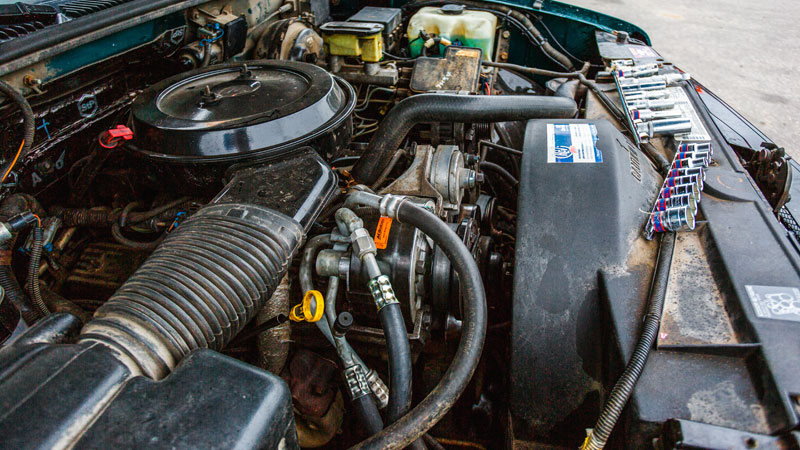
In the days of carbureted engines, a tune-up was an adjustment to the carburetor. This adjustment was needed after a certain amount of time, or if the car was to be driven at a significantly different elevation. Sometimes a tune-up may also refer to an adjustment to the distributor, which changes the vehicle’s ignition timing.
On modern engines, the phrase “tune-up” can mean a lot of different things. Most of the time, a tune-up is an inspection and replacement of the most common auto parts that wear out quickly.
For instance, when you bring your vehicle in for a tune-up, a mechanic will inspect your spark plugs, spark plug wiring, fuel filter, air filter, brakes, windshield wipers, wiper fluid, and distributor cap (if it has one).
Common Signs You Need an Oil Change or Tune-up
If your car hasn’t been running right, there’s a good chance you just need some regular maintenance. Here are some common signs your car needs a bit of TLC.
1) Black Oil
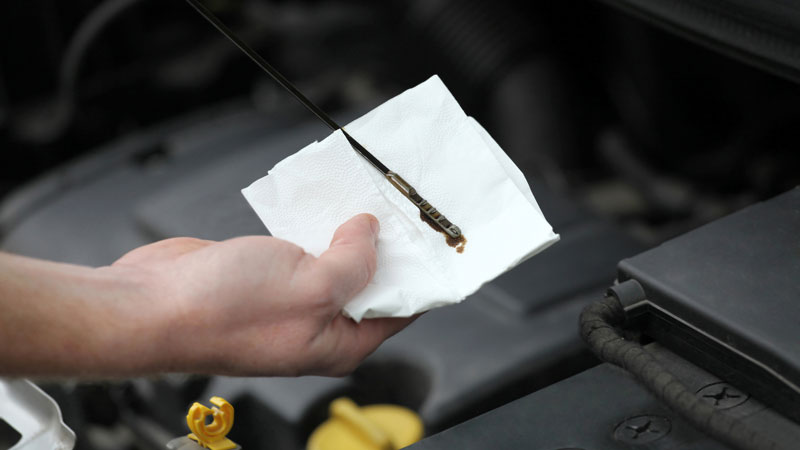
Fresh oil is supposed to look brighter and have an amber color to it. As the oil ages, it darkens. Old or dirty oil will turn very dark, and eventually will appear jet black.
When you check your oil, wipe the dipstick on a white paper towel or cloth to see what color the oil is. If it is very dark or has visible contaminants, you should change the engine oil.
Engine oil should be replaced every 3,000 to 10,000 miles. This maintenance interval depends on your vehicle, climate, driving habits, and what type of oil you run. When in doubt, always check your owner’s manual to see what the vehicle manufacturer recommends.
2) Vibrations

Unusual vibrations in the engine or chassis are often a sign that something isn’t quite right with your vehicle.
If you feel vibrations, see if you can figure out where they are coming from. Does the engine vibrate when you accelerate? Are the vibrations more intense under braking or turning?
Sometimes brakes will pulse when you step on the brake pedal. This is a sign you have uneven pad material built up on the rotors, or that the brakes are warped.
Engines may shake when they are misfiring, or if you have low compression in one or more cylinders. A compression test or leak down test will show you if this is the case with your vehicle.
3) Engine Hard to Start

When you turn the key in the ignition to start your engine, it should turn on without any problems. If you are constantly finding it difficult to get your engine turned on, consider having your battery tested. If it tests bad, replace it.
Another common cause of engines that are hard to start are incorrect air fuel ratios. This can happen if you have a vacuum leak. A vacuum leak will make the engine run too lean, and may cause issues starting or running in some cases. You can test for a vacuum leak by performing a smoke test.
4) Overheated Engine
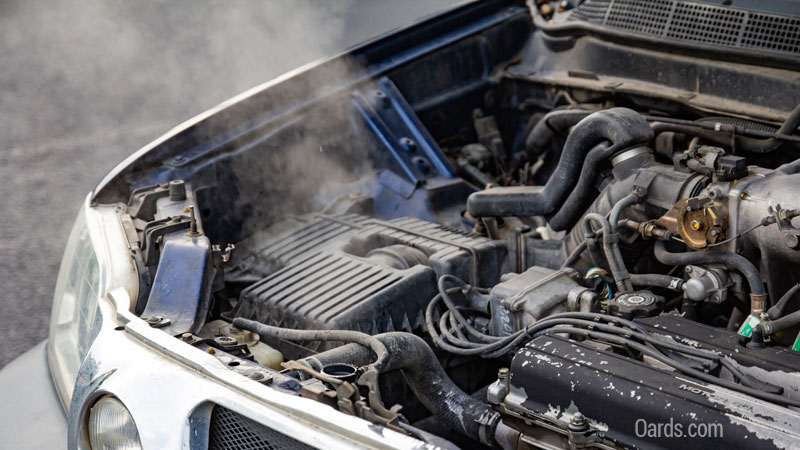
A healthy engine shouldn’t overheat. Engines may overheat because there is a problem with the cooling system. This problem could be anything from a bad head gasket to a thermostat to a simple radiator cap.
Sometimes a car may overheat because of an obstruction in the radiator, bent fins in the radiator core, or simply because the engine was running too hard for too long in hot weather. If your vehicle cools down instantly when you back off the throttle, perhaps you need a bigger radiator to meet your needs.
Many vehicles place the A/C condenser in front of the radiator, making it possible for debris to be trapped between the two. You may not notice this debris immediately upon popping the hood. Look closely for any obstructions in both the condenser and the radiator.
5) Stalling
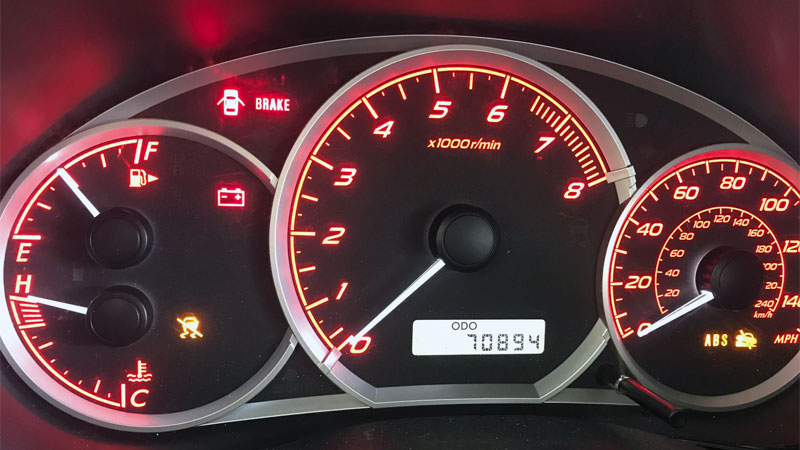
If your car suddenly stalls as you’re driving, then you should have your fuel system and ignition system inspected. You may need to replace your spark plugs or change your fuel filter.
Fuel filters are often neglected components of the fuel system. Fuel filters remove sediment and debris from the fuel so those contaminants don’t clog up the injectors. If your fuel filter is too old, some of these contaminants may be allowed to pass through the filter.
In other cases, the fuel filter becomes too restrictive and the vehicle stalls due to lack of adequate fuel flow.
6) Dirty Air Filter
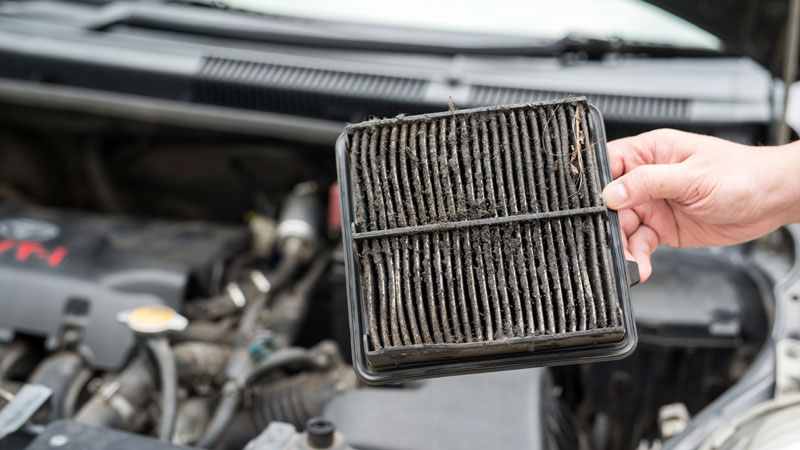
A dirty air filter may allow contaminants past the filter and into the engine. This is bad, because those contaminants could cause premature wear inside the combustion chamber, reducing the life of your engine. Your engine may also make less power due to the reduced compression.
Like the fuel filter, a dirty engine air filter is an obstruction that hurts fuel economy. If you notice that your oil is excessively dirty or that your air filter has a lot of debris in it, replace the air filter. You may pick up a few MPG by doing this.
7) Worse Fuel Economy
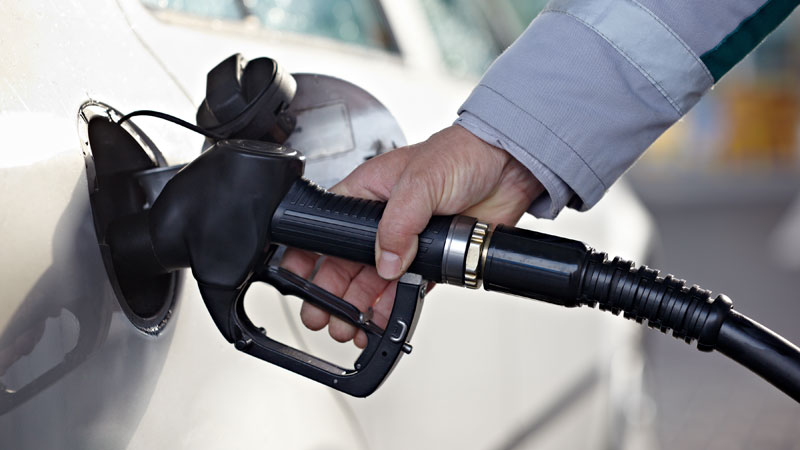
It’s always a good idea to track your fuel economy over time. To do this, track your mileage between fill-ups, then divide the number of miles by the number of gallons you’ve put in the tank. For the most consistent measurements, don’t top off the fuel tank. Let the fuel flow until the pump shuts off automatically.
If you notice that your vehicle is not getting as good fuel economy as the EPA estimate, there’s probably a maintenance item that has been overlooked. Common items that affect fuel economy are tire pressures, the engine air filter, the fuel filter, and spark plugs.
Should I Ask For a Tune-up?

A tune-up is an imprecise way of asking for vehicle maintenance. If you ask a mechanic for a tune-up, you are basically giving them free license to fix anything they think is (or is going to be) a problem on the vehicle, both in the present and the future.
If you don’t communicate clearly to your mechanic what you would like done with your vehicle, you may be writing them a blank check, allowing them to replace any part they deem necessary. This is fine if you’re not sure what needs to be done, but could quickly run up your bill.
Talk with a trusted mechanic about the current state of your vehicle. Have a clear dialogue outlining what you would like to be done or what problem you would like to solve. This way everyone walks away knowing what work will be done, and expectations on cost and time to repair are clear to both parties.
- 5 Most Common Car Repairs in the US (And Average Cost) - April 23, 2024
- Cars with an LS3 Engine (And Why They’re So Popular) - March 26, 2024
- 5 Ways to Tell Your Catalytic Converter Has Been Stolen - March 4, 2024

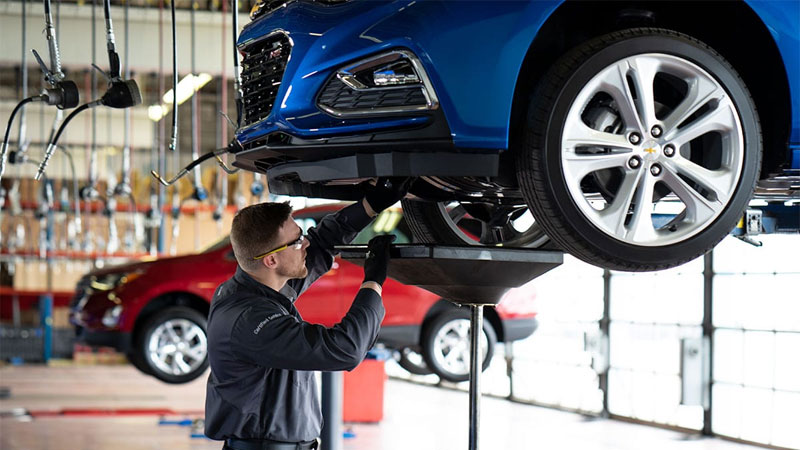
Yesterday, when I went to start my car in the morning it made a strange cranking sound that I haven’t heard before. I appreciate you helping me to understand that loud sounds can be caused by metal grinding together which means the vehicle needs an oil change. I’ll be sure to get my car to a mechanic as soon as possible.